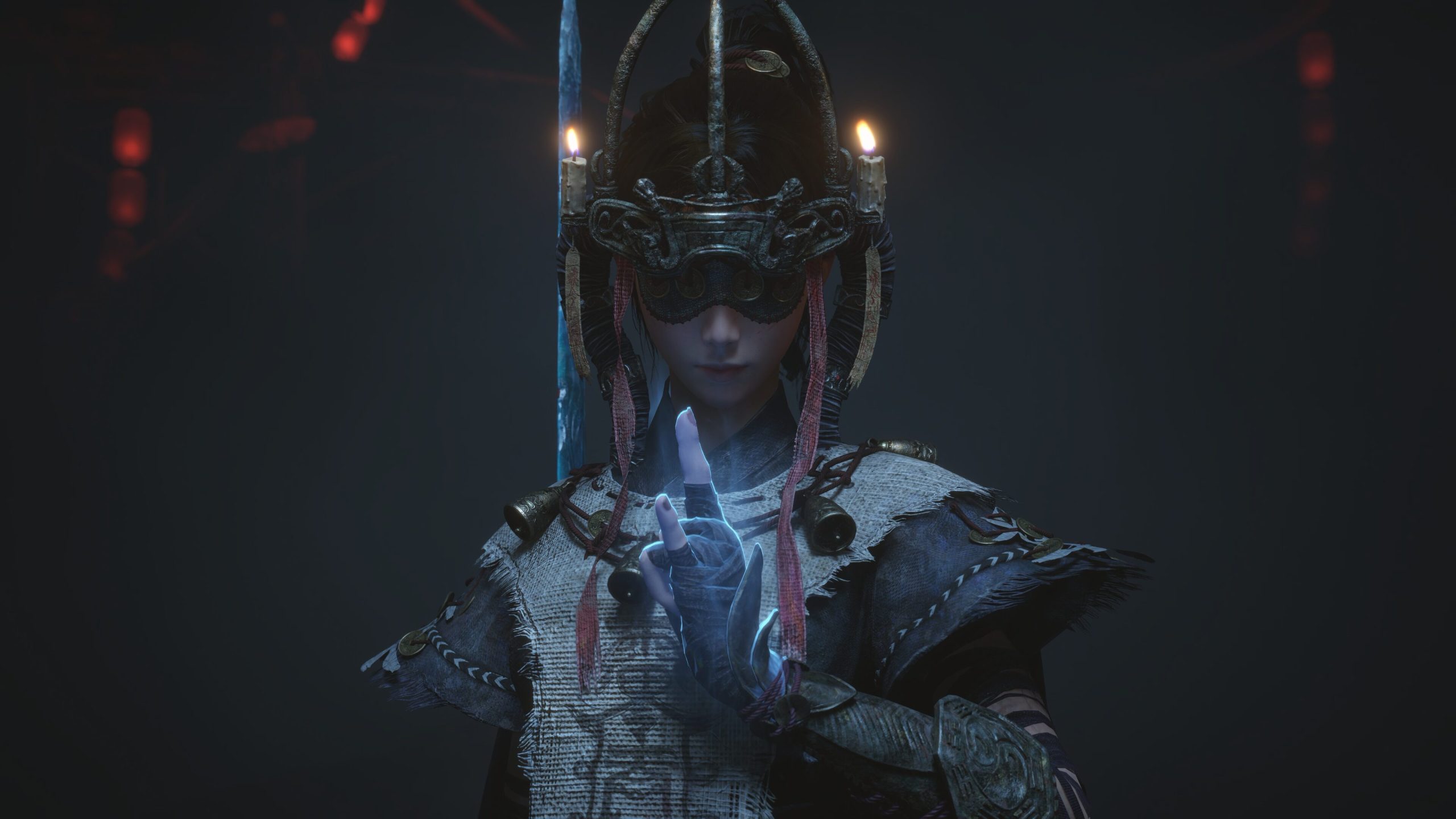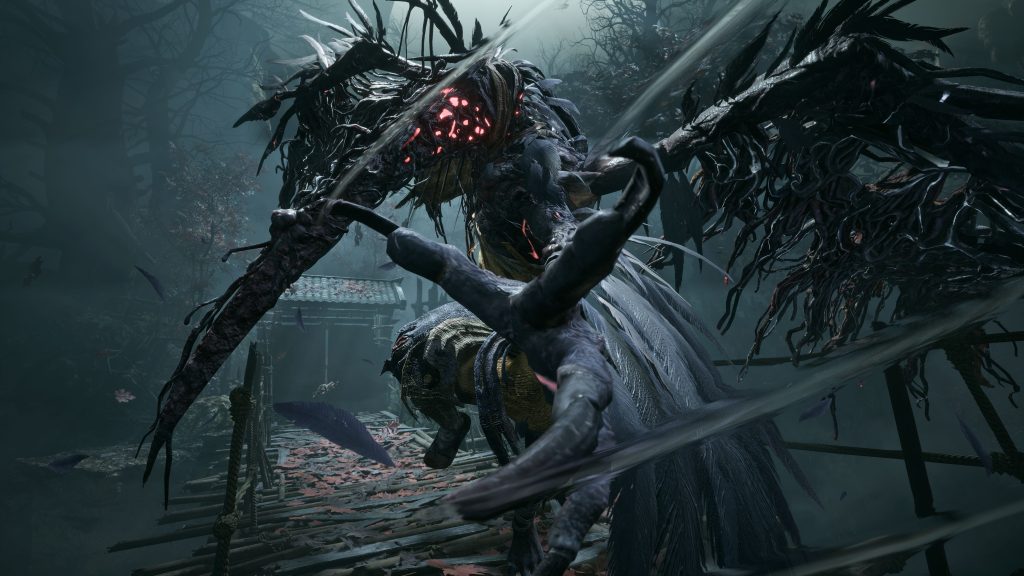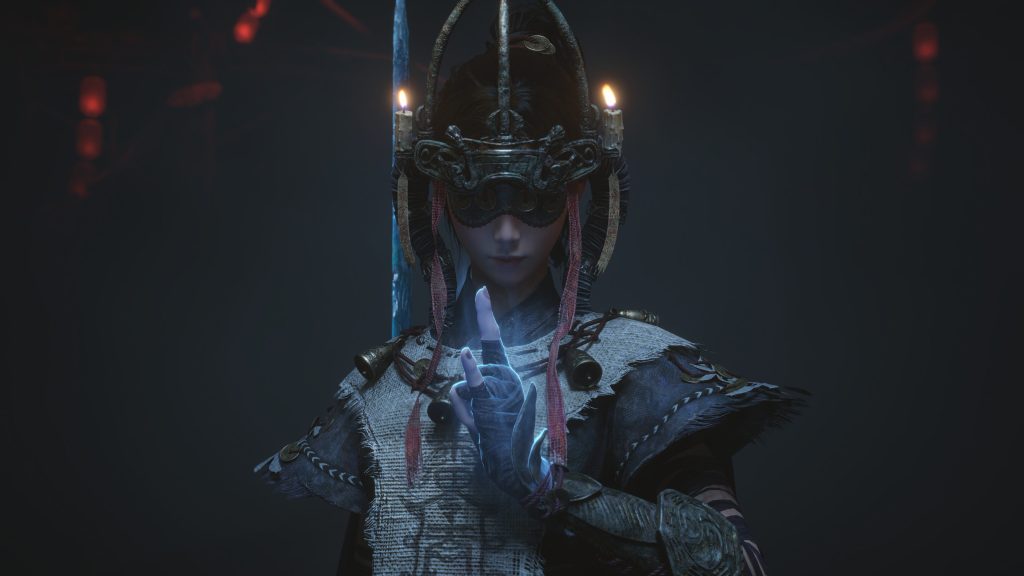
Over the past ten years, I’ve been drawn to the soulslike genre, and each new game release within this category sparks my enthusiasm. Since FromSoftware introduced the genre with the outstanding 2009 game Demon’s Souls (a title I truly believe more people should experience!), there has been a steady stream of Soulslike games. For quite some time, FromSoftware dominated the scene, as it was the pioneer of the genre, but in recent years, we’ve witnessed titles like Lies of P and Nioh expanding upon the formula in innovative ways. Last year’s Black Myth: Wukong, though not strictly a Soulslike, significantly raised the bar for action RPGs with its grand scale and aspirations. In essence, the soulslike genre and action RPGs that adopt its mechanics are thriving and I dare say, they’re experiencing their golden ages.
Delve into the world of “Wuchang: Fallen Feathers“, a fresh action RPG from developer Leenzee. While it undeniably takes cues from its forerunners, it’s aiming to carve out its unique identity. The question arises: what’s it like to play? Does it possess the power to captivate me as Lies of P or Nioh did in the past?
“Combat in Wuchang: Fallen Feathers is easily its strongest suit.”
In the era of the Ming Dynasty, the game titled “Wuchang: Fallen Feathers” positions you as Bai Wuchang, a warrior grappling with amnesia (a common trait for many modern protagonists). The land of Shu is in turmoil and not everything is as it appears. Residents are stricken by a perplexing illness called the Feathering Disease, an affliction that Bai Wuchang herself endures. This reminded me of “Bloodborne” where the inhabitants of Yharnam were also tormented by a dreadful disease. In this game as well, infected villagers may attack you upon first sight, mirroring the Soulslike genre’s typical dynamics. However, in an unusual twist, some NPCs could potentially aid your journey, while villagers might even turn against each other if they suspect someone of being infected, introducing a degree of unpredictability to the game world.
In the course of events, Bai Wuchang gradually recovers pieces of her forgotten past, unveiling intriguing secrets. While I won’t reveal what these are, it’s clear that the gameplay takes precedence over the plot; it serves more as a backdrop than the main focus to keep you hooked. It seemed to me that its purpose was to enhance the atmosphere and gameplay rather than overshadow them. Similar to many soul-like games today, there are additional tales hidden within the game’s environment, tasks such as delivering or retrieving crucial items. Whether these contribute to the main story or not depends on your exploration; you can even choose to bypass them entirely. Overall, the narrative is functional and appropriate for the world, offering multiple conclusions, but it’s not groundbreaking or something I would eagerly share with my friends.
In the game ‘Wuchang: Fallen Feathers’, the combat stands out as one of its most impressive aspects. You’ll have the option to use five distinct weapon types: axe, two-handed sword, long sword, one-handed sword, and spear. As you advance through the lengthy campaign, you’ll uncover or unlock additional weapons within each category. However, you can only wield two weapons at a time. The game allows for real-time switching between weapons, similar to other Soulslike games, but it’s important to note that while you can switch, a seamless combo system connecting attacks between the two isn’t present (though I personally thought it would be an exciting addition). Each strike feels powerful, the hitboxes are generally precise, and there seems to be no discernible delay between your controller actions and their on-screen effects.

In the game ‘Wuchang: Fallen Feathers’, the progression is structured in a way that differs slightly from the typical progression found in many conventional action RPGs.
In this game, each weapon comes equipped with unique skills that require a resource known as Skyborn Power, which is earned through tactical maneuvers such as dodging or parrying. This system heavily emphasizes skill, as it penalizes careless play with death at the hands of your adversary. While dodges may not be as swift as in Bloodborne, successful ones enable you to perform special moves, encouraging player alertness. Additionally, the game offers a magic system with numerous spells to discover and employ, enabling players to blend physical and magical attacks for an immersive combat experience.
In addition, there’s a system called Benediction where you can apply certain materials to your selected weapon to get extra benefits like better blocking or higher damage output. Additionally, there’s the Temper system, which enables you to boost character-specific attributes such as weapon speed or elemental effects like fire. Last but not least, there’s the Discipline system, which consists of combos tied to each weapon type that you collect during your adventure. Although these systems aren’t revolutionary for a contemporary AAA combat-centric game, I believe they provide an enjoyable layer of weapon customization that harmoniously enhances the existing mechanics.
In Wuchang: Fallen Feathers, progression is structured in an unconventional manner compared to typical action RPGs. Instead of the standard attributes like vitality, stamina, and magic that you level up, your advancement is primarily linked to your weapons. By employing Red Mercury Essence (the game’s equivalent of souls) and various other upgrade materials, you can enhance any weapon type you prefer. However, this might steer players towards specializing in a single weapon. In my experience, I concentrated mostly on upgrading my longsword, but the game does accommodate well-rounded builds too.
As a gamer, I find the freedom this game offers truly invigorating. If I feel like switching things up, I can easily reset those skill nodes, providing me with endless opportunities to tinker with my character’s build. There are even upgrade paths tailored to enhance character traits like vitality and other stats, but it’s the weapon-based advancement that really takes center stage in Wuchang.
The game also incorporates an intriguing risk-reward system – each time my character perishes, I lose some Red Mercury. However, the quantity lost is influenced by a captivating mechanic known as Inner Demon Level. Every demise elevates my character’s madness level, which in turn raises the Inner Demon Level, causing me to lose more mercury. This system grants me increased damage potential as I succumb to madness, but at a price – I become significantly more vulnerable to attacks.
If you perish while your insanity is elevated, a mirror image of Bai will materialize at the location of your demise. To regain your stolen Red Mercury Essence, you’ll have to vanquish her in combat. It’s intriguing that some abilities and weapons are connected to this insanity system, gaining functionality or increased potency at specific insanity levels. I discovered this mechanism to be a cunning design, offering rewards for daring playstyles as long as you possess the necessary skills to manage the difficulties it presents.
In 2025, the game titled “Wuchang: Fallen Feathers” is known for being one of the most challenging games you’ll play. However, it may not be the hardest Soulslike game out there. The bosses can indeed test your patience, especially on initial attempts, but once you grasp their patterns and timing, they become somewhat more manageable. The boss designs are consistently impressive, offering a diverse array of enemy types that differ in shapes and strategies. As an experienced Souls player, I found the difficulty level rewarding and the variety invigorating, with each confrontation presenting its unique flavor of tension.
In my experience, there were some minor letdowns in the game’s level layout. Occasionally, I found myself facing narrow passages that seemed impassable, and other times, enemies were placed so close yet inaccessible due to a lack of navigation routes. Such instances disrupt the gaming experience and can appear as suboptimal level design. To maintain consistency, it would be better if these areas had bridges or paths connecting them, or else place adversaries beyond my reach if I cannot interact with them directly.
It’s important to clarify that this problem wasn’t common during my playthrough of the game. Generally speaking, I appreciated the levels for their skillful construction and strong connectivity, which are characteristic of the genre. However, it’s possible that I’m being overly critical because when many Soulslike games have excelled in level design with few flaws, such instances really catch my attention, more than they should.
A concern I have about this game is that it doesn’t appear to fully utilize the potential of Unreal Engine 5. Since Wuchang: Fallen Feathers initially started development on UE4, there are indications of a less-than-smooth transition to more advanced technology. Despite this, there are certain aspects that look amazing, but some textures and assets reveal their roots in older technology. However, the overall appearance is impressive, with smooth animations, detailed environments, and acceptable cutscenes. The soundtrack, while not exceptional or memorable, does its job effectively.

“Overall, I found Wuchang: Fallen Feathers to be a solid entry in the Soulslike genre.”
On a powerful gaming setup (Ryzen 5950X, RTX 3080 Ti, and 32GB of RAM), I ran the game with most settings at maximum in 4K resolution, utilizing one of the scaling options. The performance was satisfactory, although it didn’t consistently hit 60fps due to occasional drops during intense scenes. Fortunately, there were no stutters. I anticipate performance improvements after post-release updates. While it may not reach the visual splendor of Black Myth: Wukong, Wuchang provides a visually capable and generally stable gaming experience.
As a dedicated gamer diving headfirst into the Soulslike realm, I’ve got to say that Wuchang: Fallen Feathers didn’t disappoint. The combat was engaging, the skill systems were intricate, and the madness system, offering unique risk-reward mechanics, added an extra layer of depth that kept me hooked. It feels like the creators truly get what makes Soulslikes tick, delivering an authentic experience with panache.
In summary, Wuchang seems to play it safe by sticking closely to traditional genre norms and seldom venturing into uncharted territory. It lacks the innovative spark to revolutionize or substantially advance the genre, but for many players like myself, this isn’t a deal-breaker. Wuchang manages to execute what it does effectively, and sometimes, that’s all we need.
This game was reviewed on PC.
Read More
- Clash Royale Best Boss Bandit Champion decks
- Vampire’s Fall 2 redeem codes and how to use them (June 2025)
- Mobile Legends January 2026 Leaks: Upcoming new skins, heroes, events and more
- M7 Pass Event Guide: All you need to know
- Clash Royale Furnace Evolution best decks guide
- World Eternal Online promo codes and how to use them (September 2025)
- Clash Royale Season 79 “Fire and Ice” January 2026 Update and Balance Changes
- Best Arena 9 Decks in Clast Royale
- Clash of Clans January 2026: List of Weekly Events, Challenges, and Rewards
- Best Hero Card Decks in Clash Royale
2025-07-23 17:45